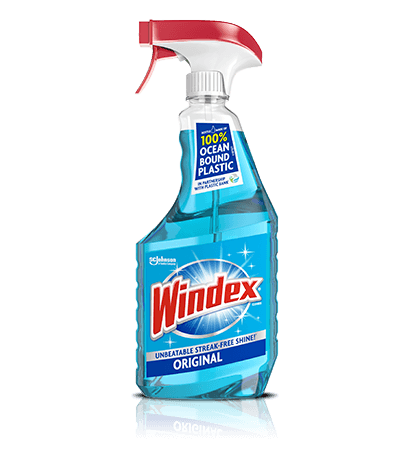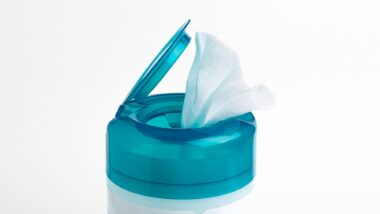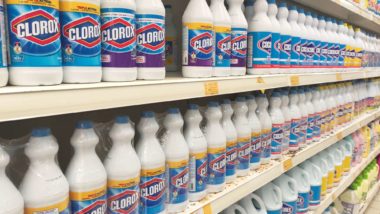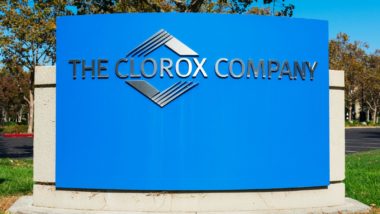Top Class Actions’s website and social media posts use affiliate links. If you make a purchase using such links, we may receive a commission, but it will not result in any additional charges to you. Please review our Affiliate Link Disclosure for more information.

Plaintiff Owen Rosenberg says several of S.C. Johnson’s Windex formulas — including Original, Ammonia-Free, Vinegar and Multisurface — are represented on the label as being “non-toxic” and that reasonable consumers would conclude the products are not dangerous to people, animals or the environment.
However, Rosenberg says, the products actually contain toxic ingredients such as butylphenyl methylpropional, linalool, 2-hexoxyethanol and isopropanolamine, all of which are toxic.
The Windex class action lawsuit explains the chemicals have been linked to various illnesses.
For example, 2-hexoxyethanol can cause damage to the central nervous system and kidney failure if absorbed through the skin, can irritate the respiratory tract and is harmful if swallowed.
Linalool may cause contact dermatitis, and isopropanolamine is “a combustible, corrosive chemical” that causes skin and eye irritation, loss of vision, abdominal pain and shock or collapse if swallowed, and sore throat and shortness of breath if inhaled.
Rosenberg’s class action lawsuit maintains that labeling the products non-toxic when they contain such chemicals is misleading and deceptive.
The National Advertising Division has found that the representations on the labels and in the advertising of these Windex products are false and misleading. In fact, on March 24, the NAD recommended S.C. Johnson discontinue the “non-toxic” claim on the label of the Windex Vinegar Glass Cleaner.
“A reasonable consumer’s understanding of the concept of ‘will not harm’ is not limited to death, but also various types of temporary physical illness, such as vomiting, rash, and gastrointestinal upset,” the NAD said in explaining its decision.
The Federal Trade Commission has issued guidelines for products marketed as “non-toxic” in the form of Green Guides.
The Green Guides are designed to “help marketers avoid making environmental marketing claims that are unfair or deceptive” and prohibits product representations that are likely to mislead consumers.
According to the Windex class action lawsuit, to accurately claim a product is non-toxic, marketers must have “reliable scientific evidence to substantiate such a claim” or clearly qualify their claims.
The Environmental Protection Agency has warned that claims of a product’s non-toxicity might prevent consumers from taking the necessary precautions when handling the product, Rosenberg’s Windex lawsuit says.
The plaintiff argues S.C. Johnson has sold more of the Windex formulas in question and at higher prices per unit than it would have without the “non-toxic” marketing, thereby causing consumers to pay more, and leading to additional profits for the company.
As a result of the misleading labeling, Windex sells for no less than $3.17 for a 23-ounce container before tax, a premium price compared to similar products not represented in a misleading way.
And so, Rosenberg maintains, the value of the product purchased by himself and other Class Members is “materially less than its value as represented by the defendant.”
At least two other class action lawsuits related to Windex’s “non-toxic” claims are making their way through the courts.
Consumer Michelle Moran says she purchased Original Windex because of its claims of being non-toxic, only to find out later that some of the ingredients were in fact, toxic.

In a separate class action lawsuit, plaintiff Katherine Shimanovsky says Windex Vinegar Glass Cleaner contains ingredients that could be potentially harmful to people, pets and the environment.
Shimanovsky states she purchased the product because she wanted to avoid harm caused by harsh chemicals, and assumed that’s what was meant by “non-toxic.”
The potential Class in Rosenberg’s Windex lawsuit consists of anyone who purchased the products in the U.S. between June 8, 2017, and the time of the trial.
Rosenberg is seeking a preliminary injunction directing S.C. Johnson to correct the practices challenged in the class action lawsuit, restitution and disgorgement for Class Members, monetary damages and interest, court costs and attorneys’ and experts’ fees, and any other relief deemed proper by the Court.
Have you purchased Windex because it was labeled as non-toxic? Share your experience in the comments below.
Rosenberg and the proposed Class are represented by Michael R. Reese of Reese LLP and Spencer Sheehan of Sheehan & Associates PC.
The Non-Toxic Windex Class Action Lawsuit is Owen Rosenberg, et al. v. S.C. Johnson & Son Inc., Case No. 2:20-cv-0869, in the U.S. District Court for the Eastern District of Wisconsin.
ATTORNEY ADVERTISING
Top Class Actions is a Proud Member of the American Bar Association
LEGAL INFORMATION IS NOT LEGAL ADVICE
Top Class Actions Legal Statement
©2008 – 2024 Top Class Actions® LLC
Various Trademarks held by their respective owners
This website is not intended for viewing or usage by European Union citizens.













150 thoughts onWindex Class Action Alleges Deceptive ‘Non-Toxic’ Label
Add me…I have used Windex for years and years and have bottles (and cans of the foam version) in multiple areas of my house, my garage, and in cars. I have used this around my babies, my pets, and would NEVER have purchased knowing it had toxic ingredients. Now I wonder what illnesses this has caused and what health impact it will have due to such heavy exposure over the years!
add me.
Add me
Add me
I have been using Windex because it stated it was non toxic .
I purchased Windex from Jan 1, 2019 thru July 9 2021. Please add me